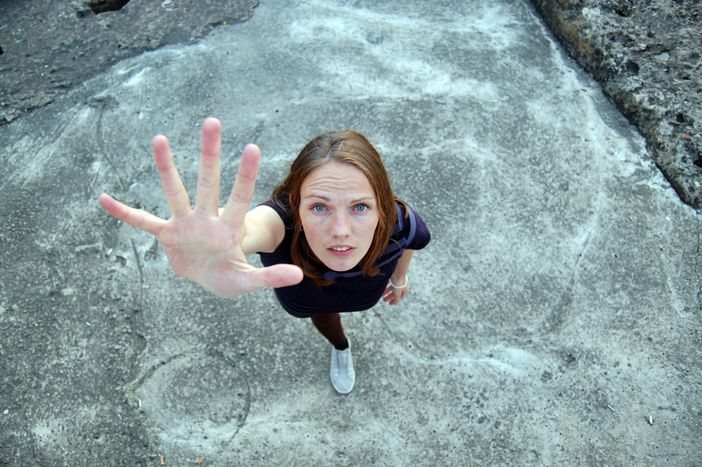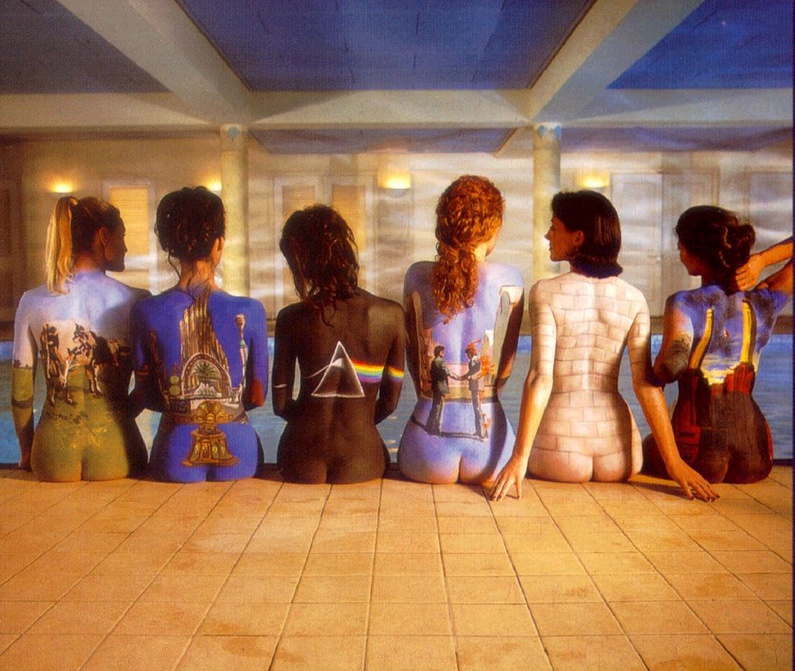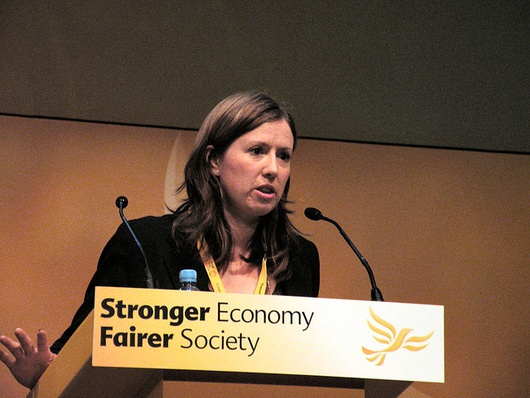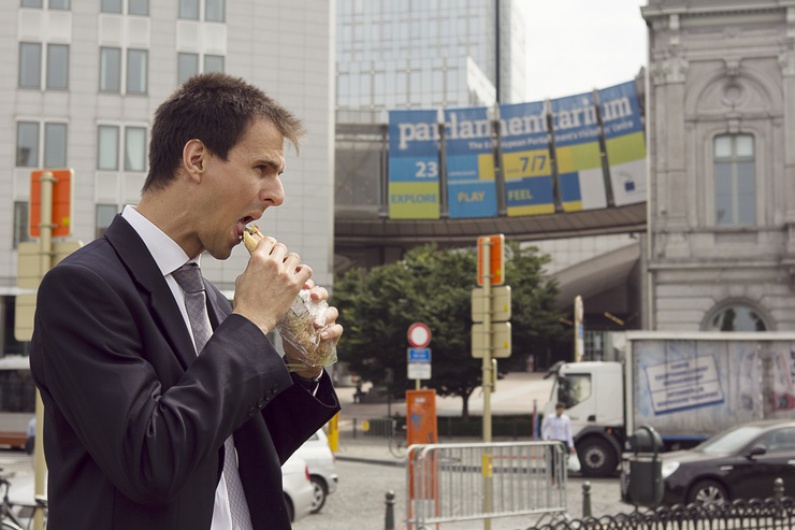
Rebecca Taylor MEP: What Can Europe Do For Young People?
Published on
The EU is often accused of not caring about young people. But this is a simplification. Some MEPs devote their time to improving the lot of Europe’s youth. Rebecca Taylor is one of them. The Liberal Democrat MEP and Vice President of the European Parliament's Youth Intergroup told Cafébabel what the EU actually does for young people, why human contact beats Twitter and why we love immigration.
Immigration
Eurosceptics claim that young people blame high levels of youth unemployment on EU immigration. Ray Finch, a UKIP candidate for the European elections, told me young people support UKIP because they are “being denied opportunities in the jobs market because of the cheap labour flooding in mostly from Eastern Europe.”
But Liberal Democrat MEP Rebecca Taylor says the opposite is true. As a member of Britain’s Europhile party, and vice-president of the EU Youth Intergroup, you may expect her perspective to be somewhat partisan, but it’s backed up by all the polls; the youth are Europhiles; the pensioners are sceptics.
 “Young people are overwhelmingly pro-European mainly because they think of the future job opportunities and they understand the whole ‘the single market is good for employment’ argument,” Taylor explains. “They want the opportunity to study or work in another country, because everyone knows someone who’s done it.” Three million students have benefitted from the Erasmus programme since 1987, but Taylor highlights that the benefits of open borders are not confined to university students alone. “I’ve got a friend of a friend who’s a plumber who has gone to work in a ski resort in the French Alps for six months,” she says, “and one of my brother’s mates left school at 16 to live in Spain for several years working in a bar.”
“Young people are overwhelmingly pro-European mainly because they think of the future job opportunities and they understand the whole ‘the single market is good for employment’ argument,” Taylor explains. “They want the opportunity to study or work in another country, because everyone knows someone who’s done it.” Three million students have benefitted from the Erasmus programme since 1987, but Taylor highlights that the benefits of open borders are not confined to university students alone. “I’ve got a friend of a friend who’s a plumber who has gone to work in a ski resort in the French Alps for six months,” she says, “and one of my brother’s mates left school at 16 to live in Spain for several years working in a bar.”
"I prefer the Jam to Pink Floyd"
But what can politicians do to get young people interested in Europe? The 2014 elections have been branded the “Twitter Elections”, and the social network is often perceived as a panacea that will miraculously remedy youth disillusion. UKIP’s Ray Finch tells me Twitter is an excellent tool for engaging with young people, “because it is an instant and focused medium.” He likens it to popular music, “I always prefer The Jam to Pink Floyd as I feel if you can't get your point across in 3 minutes then you are wasting my time. Twitter is the same. I can explain my political philosophy in 140 characters.”
On the other hand, Rebecca Taylor says Twitter is a useful tool but it’s not enough. Actually meeting young people is the only way to engage them in politics. She helped a group of young people from Yorkshire come to Brussels and she speaks at schools in her Yorkshire and Humber constituency whenever she can. She laments that despite her frenetic outreach programme she probably hasn’t even been to 10% of the schools there. But then again, you’d be hard pressed to find a national MP who has. This focus on direct engagement- of getting out there and putting your face about- is the essence of grass roots politics, a far cry from the faceless, uncaring bureaucracy eurosceptics depict.
The nuts and Bolts: What the EU actually does
 Taylor says the European Youth Guarantee scheme is the cornerstone of the EU’s approach to youth unemployment. It will guarantee employment, training or further education to all young people out of work or education for more than four months. €6 billion has been set aside in the 2014-2020 budget. Taylor has also pushed for a Masters loan facility. Bolted onto the Erasmus scheme, it allows everyone to do a Masters degree, ensuring pan-European parity in access to education.
Taylor says the European Youth Guarantee scheme is the cornerstone of the EU’s approach to youth unemployment. It will guarantee employment, training or further education to all young people out of work or education for more than four months. €6 billion has been set aside in the 2014-2020 budget. Taylor has also pushed for a Masters loan facility. Bolted onto the Erasmus scheme, it allows everyone to do a Masters degree, ensuring pan-European parity in access to education.
One of Rebecca’s pet projects is the fight against unpaid internships, which she sees as a form of social discrimination. This has not made her popular with other MEPs who profit from the free labour provided by aspirational youngsters. At an event she was confronted by an Austrian intern, “He said, ‘Yes my internship is unpaid but it’s a really good experience, it’s going to look great on my CV.’ He didn’t really get the point so I said, ‘Who’s paying for your rent? Who’s buying your food?’ Of course it was his parents.”
 “An internship should be an opportunity that’s based on merit, not based on ‘can my mum and dad support me for six months in Brussels,” she explains with passion. But not everyone feels the same. Fellow Liberal Democrat MEP Sarah Ludford was recently caught offering a six month unpaid internship. In March 2014, the EU’s Permanent Representatives Committee failed woefully to end unpaid internships in EU institutions. Lofty rhetoric and large scale youth schemes should be backed up by attention to detail in the EU’s own backyard.
“An internship should be an opportunity that’s based on merit, not based on ‘can my mum and dad support me for six months in Brussels,” she explains with passion. But not everyone feels the same. Fellow Liberal Democrat MEP Sarah Ludford was recently caught offering a six month unpaid internship. In March 2014, the EU’s Permanent Representatives Committee failed woefully to end unpaid internships in EU institutions. Lofty rhetoric and large scale youth schemes should be backed up by attention to detail in the EU’s own backyard.
Thinking Young
Taylor’s focus on youth issues makes sense considering she is young for an MEP (39). The average MEP is 55 and the average European Commissioner is 57. Is this skew to blame for the EU’s failure to deal with youth issues? Taylor reminds me there are MEPs ten years younger than her, but she accepts different generations have different perspectives. “I’ve had times in my life when it’s been tough to find a job, so I actually know what that feels like,” she says. “When my parents went to university in the late 60s, 5% of the population did. You were almost guaranteed a job as a graduate. Things have changed.”
This generational divide was prominent when the Masters loan scheme was being drawn up. Some commissioners said the loan would have to be repaid, “within a year come what may,” even if the recipient couldn’t find a job. Apparently the Commission, “think that everyone with a Masters’ degree just gets a job. Wake up and smell the coffee!” Taylor exclaims incredulously.
Rebecca Taylor seems thoroughly committed to improving the lot of Europe’s young people. It’s easy to beat the EU with the stick of unprecedented youth unemployment, and at times Rebecca is critical herself. But to say the EU is not acting is a fallacy. Indeed, to portray the EU as a single-minded body is the greatest fallacy of all. It’s a patchwork of different philosophies and perspectives, and some of these are far more focused and aware of youth issues than others. It’s only by voting in the May elections that the youth of Europe can influence these currents. In the words of Rebecca Taylor, “if you don’t vote it’ll be other people deciding and they’ve got a very different view of Europe to you.”



